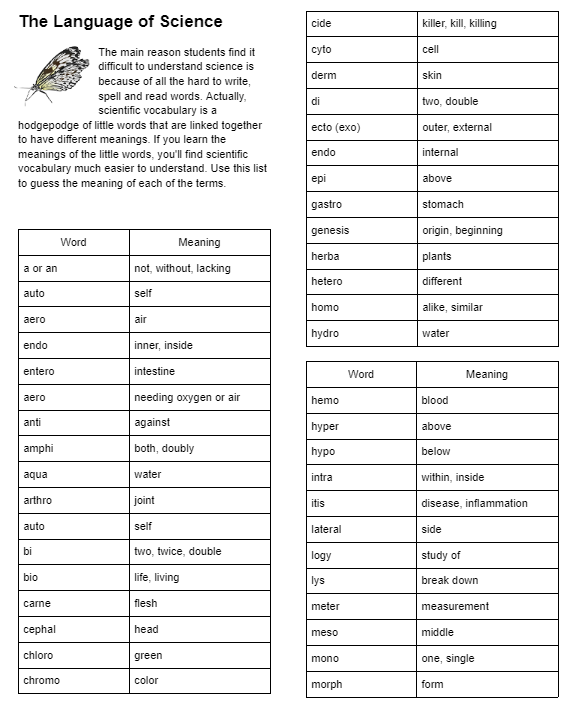The Language of Science
The main reason students find it difficult to understand science is because of all the hard to write, spell and read words. Actually, scientific vocabulary is a hodge podge of little words that are linked together to have different meanings. If you learn the meanings of the little words, you'll find scientific vocabulary much easier to understand. Use this list to guess the meaning of each of the terms.
Science root words, also known as scientific prefixes, suffixes, and roots, are used in scientific terminology to convey specific meanings related to various branches of science. These root words are often derived from Latin or Greek and are combined to form words that describe concepts, processes, structures, or phenomena in the natural world. Here are some common ways science root words are used:
-
Prefixes: Prefixes are added to the beginning of a word to modify its meaning. For example:
- "Micro-" means small or microscopic, as in microorganism (a small organism).
- "Macro-" means large or macroscopic, as in macroeconomics (the study of large-scale economic systems).
-
Suffixes: Suffixes are added to the end of a word to modify its meaning or indicate a specific function. For example:
- "-logy" refers to the study of a particular subject, as in biology (the study of living organisms).
- "-meter" refers to a measuring device or instrument, as in thermometer (an instrument for measuring temperature).
-
Root Words: Root words are the basic building blocks of scientific terminology and convey core meanings. For example:
- "Bio-" refers to life or living organisms, as in biology (the study of living organisms).
- "Hydro-" refers to water, as in hydrology (the study of water and its distribution).

